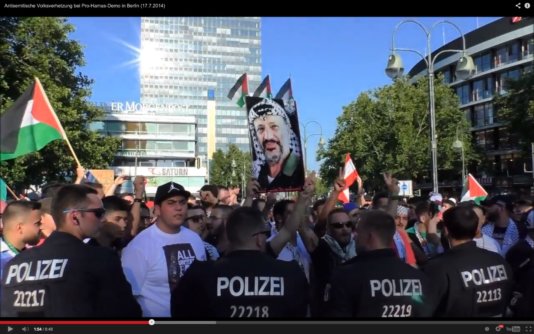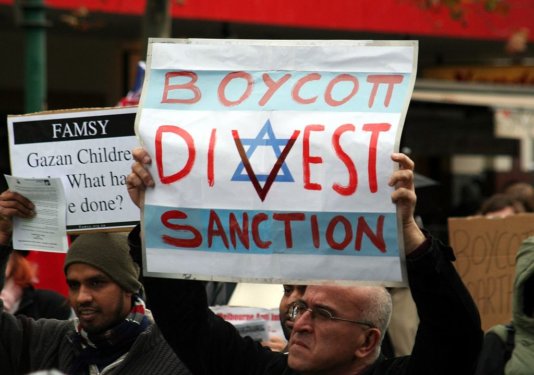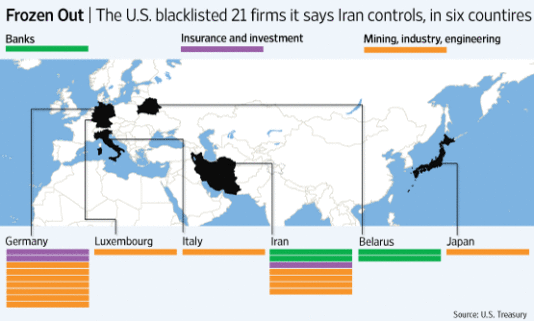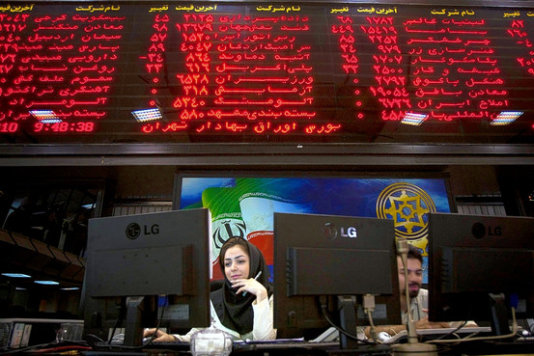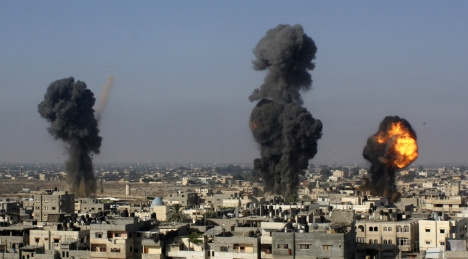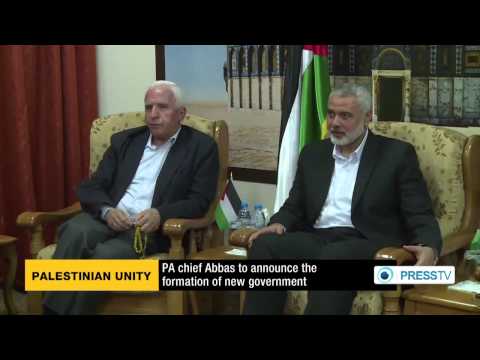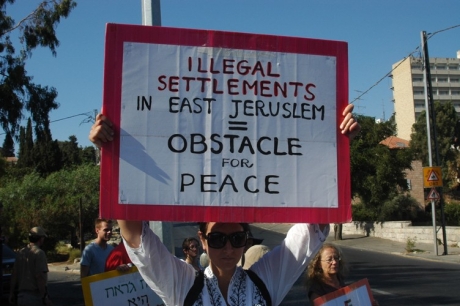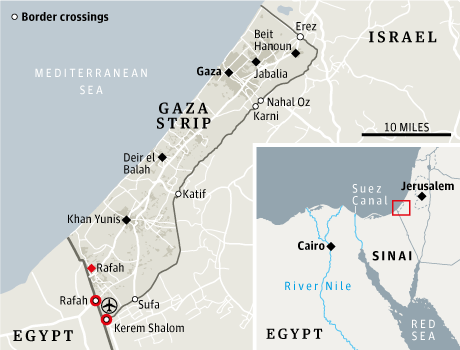- About
- Topics
- Picks
- Audio
- Story
- In-Depth
- Opinion
- News
- Donate
-
Signup for our newsletterOur Editors' Best Picks.Send
Read, Debate: Engage.
| July 24, 2014 | |
|---|---|
| tags: | #Cease-fire, #Consensus government, #Divest, #Economic sanctions, #Egypt, #Fatah, #Gaza, #Hamas, #Israel, #Mahmoud Abbas, #Palestine |
| located: | Egypt, Israel |
| by: | Murat Suner |
Yesterday, foreign ministers of France, Germany and Italy condemned anti-Semitic protests with a joint statement tackling the rise in the number of demonstrations and hostile rhetoric 'that cross line into racism and xenophobia' reports the Guardian.
Others are attempting to pull the conflict over the logic of violence to an economic level by referring to the business agenda of companies and lobbyists, because every war implies monetary benefits, and thus the involvement of industrial-military entities.
Yesterday, fairplanet.org posted a petition that has been initiated by avaaz.org. More than a million people signed it, apparently most of them from the Western world. Even if we do not fully agree with its content - it's insufficiently exposing the nature of fundamentalist, extremist and anti-Semitic Hamas, which is not recognizing Israel and ruthlessly using its people to increase the number of civil victims just like Saddam Husssein did when Iraq invaded Kuwait - we published the petition. Because economic pressure is another legitimate option compared to further killings. But then, what about economic sanctions on regimes supporting Hamas and Islamic Jihad like Iran, Turkey or Qatar? Who else is involved in the globally entangled economic ties supporting one or the other party?
Gideon Levy's opinion published in Haaretz takes a political and economic perspective on the conflict, which courageously breaks the logic of revenge by concretely examining the demands of the bitter enemy. Because he thinks that these "are right and conform to Israel’s own interests in the long run" and might lead to a cease-fire not only for two hours, but for years - a precondition to negotiate any condition of peace, another time.
According to Levy it's worth having an honest look at the conditions raised by the Palestinian side. Last week 10 conditions were published in the name of Hamas and Islamic Jihad, for a 10-year ceasefire. Levy says:
"We may doubt whether these were in fact the demands of those organizations, but they can serve as a fair basis for an agreement. There is not one unfounded condition among them."
"Hamas and Islamic Jihad demand freedom for Gaza. Is there a more understandable and just demand? There is no way to end the current cycle of killing, and not have another round in a few months, without accepting this. No military operation, by air, ground or sea, will bring a solution; only a basic change of attitude toward Gaza can ensure what everyone wants: quiet.
"Read the list of demands and judge honestly whether there is one unjust demand among them: withdrawal of Israel Defense Forces troops and allowing farmers to work their land up to the fence; release of all prisoners from the Gilad Shalit swap who have been rearrested; an end to the siege and opening of the crossings; opening of a port and airport under UN management; expansion of the fishing zone; international supervision of the Rafah crossing; an Israeli pledge to a 10-year cease-fire and closure of Gaza’s air space to Israeli aircraft; permits to Gaza residents to visit Jerusalem and pray at the Al-Aqsa mosque; and an Israeli pledge not to interfere in internal Palestinian politics such as the unity government; opening Gaza’s industrial zone.
"These conditions are civilian; the means of achieving them are military, violent and criminal. But the (bitter) truth is that when Gaza is not firing rockets at Israel, nobody cares about it. Look at the fate of the Palestinian leader who had had enough of violence. Israel did everything it could to destroy Mahmoud Abbas. The depressing conclusion? Only force works.
"The current war is a war of choice, a choice that we had. True, after Hamas started firing rockets, Israel had to respond. But as opposed to what Israeli propaganda tries to sell, the rockets didn’t fall out of the sky from nowhere. Go back a few months: the breakdown of negotiations by Israel; the war on Hamas in the West Bank following the murder of the three yeshiva students, which it is doubtful Hamas planned, including the false arrest of 500 of its activists; stopping payment of salaries to Hamas workers in Gaza and Israeli opposition to the unity government, which might have brought the organization into the political sphere. Anyone who thinks all this would simply be taken in stride must be suffering from arrogance, complacence and blindness.
"Terrifying amounts of blood are being spilled in Gaza – and in Israel to a lesser extent. It is being spilled in vain. Hamas is beaten down by Israel and humiliated by Egypt. The only chance for a real solution is exactly the opposite of the way Israel is going. A port in Gaza to export its excellent strawberries? To Israelis this sounds like heresy. Here once again, the preference is for (Palestinian) blood over (Palestinian) strawberries."
By copying the embed code below, you agree to adhere to our republishing guidelines.

